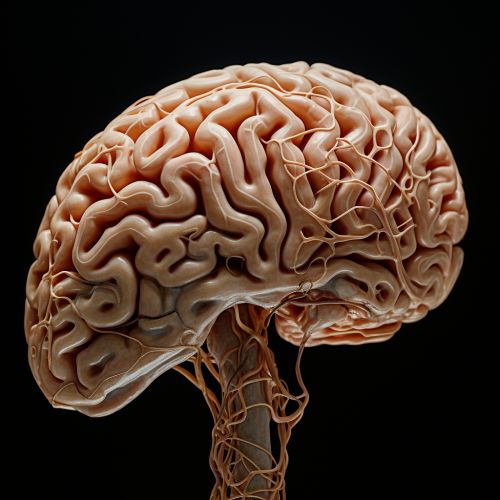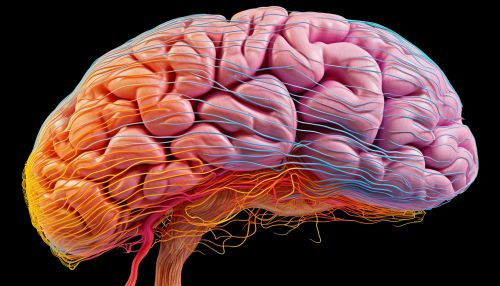Cognitive Neuroscience of Executive Functions
Introduction
Cognitive neuroscience is a branch of neuroscience that studies the biological processes that underlie cognition, especially those that occur in the brain. This field of study focuses on how the brain and the rest of the nervous system influence cognition and behaviors. More specifically, cognitive neuroscience is an interdisciplinary area of study that has emerged from neuroscience and psychology. There were several stages in these disciplines that changed the way researchers approached their investigations and that led to the field becoming fully established.
Executive functions (also known as cognitive control and supervisory attentional system) is a set of cognitive processes that are necessary for the cognitive control of behavior: selecting and successfully monitoring behaviors that facilitate the attainment of chosen goals. Executive functions include basic cognitive processes such as attentional control, cognitive inhibition, inhibitory control, working memory, and cognitive flexibility. Higher order executive functions require the simultaneous use of multiple basic executive functions and include planning and fluid intelligence (i.e., reasoning and problem solving).
Cognitive neuroscience of executive functions is a field of research that combines the study of executive functions with the methods of cognitive neuroscience, with the goal of understanding how the brain's biological processes underlie these complex cognitive abilities and behaviors.


History of Cognitive Neuroscience of Executive Functions
The field of cognitive neuroscience began to emerge in the 1950s, around the time when the study of the brain became more sophisticated due to advances in neuroimaging technology. Cognitive neuroscience grew out of and matured alongside cognitive psychology and neuropsychology. In the 1980s, the term "cognitive neuroscience" was coined, which marked the formal inception of the field. Cognitive neuroscience of executive functions has grown from these roots.
Basic Cognitive Processes
Attentional Control
Attentional control refers to an individual's capacity to choose what they pay attention to and what they ignore. It is a crucial component of executive functions, as it is necessary for success in tasks that require cognitive control of behavior.
Cognitive Inhibition
Cognitive inhibition is the mind's ability to tune out stimuli that are irrelevant to the task/process at hand or to the individual's current state. Inhibition is a key aspect of executive functions as it allows for the regulation of behavior by controlling distractions and helping to regulate emotions.
Inhibitory Control
Inhibitory control, a subset of inhibitory processes, involves being able to override a strong internal or external pull to appropriately act within the demands of the environment. It is crucial for the ability to delay gratification, control impulses, and make thoughtful decisions.
Working Memory
Working memory is the cognitive system responsible for keeping information in the mind, where it can be manipulated. It is a fundamental process necessary for cognitive tasks such as reasoning, learning, and comprehension.
Cognitive Flexibility
Cognitive flexibility is the mental ability to switch between thinking about two different concepts, and to think about multiple concepts simultaneously. It is a crucial aspect of executive function, as it allows individuals to adjust and adapt their plans and behaviors in response to changing goals and environments.
Higher Order Executive Functions
Planning
Planning is an advanced behavior that involves the ability to anticipate future events and set goals. It requires the use of multiple basic executive functions, such as working memory and cognitive flexibility.
Fluid Intelligence
Fluid intelligence refers to the ability to reason and solve novel problems, independent of any knowledge from the past. It is the capacity to use knowledge, reason, understand relations, and solve problems that a person has never encountered before.
Neural Substrates of Executive Functions
The prefrontal cortex is often considered to be the "command center" for executive functions, as it is involved in a variety of complex behaviors. However, executive functions are not solely the domain of the prefrontal cortex, but rather they involve a distributed network of brain regions. For example, the basal ganglia and the cerebellum are also involved in the regulation of executive functions.
Clinical Implications
Understanding the cognitive neuroscience of executive functions has important clinical implications. For example, executive function deficits are a common symptom in many neurodegenerative diseases, such as Alzheimer's disease. Furthermore, executive function abilities can be affected by various psychiatric conditions, including depression and schizophrenia. Therefore, research in this field can contribute to the development of new therapeutic strategies for these and other conditions.
Future Directions
The field of cognitive neuroscience of executive functions continues to evolve, with new research methods and theoretical approaches being developed. Future research will likely continue to elucidate the complex neural networks involved in executive functions and how these networks interact with other cognitive systems in the brain.
